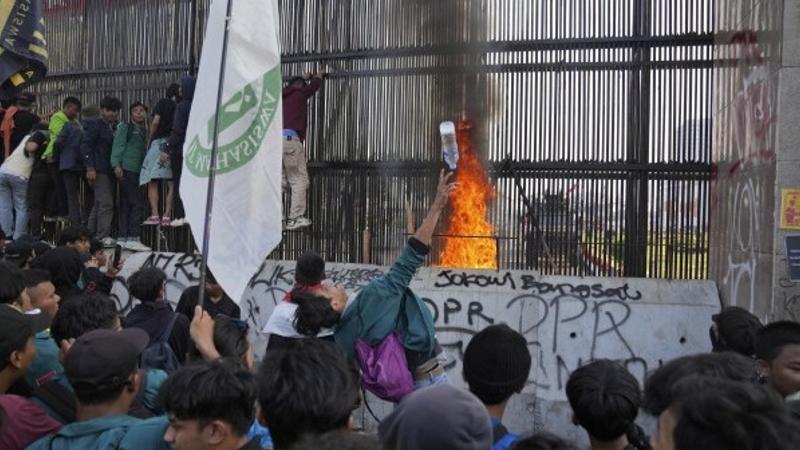Published 18:18 IST, August 22nd 2024
Explained: Why are People Protesting in Indonesia?
The attempt to overturn the court’s decision has raised concerns about a power struggle between Indonesia’s parliament and its constitutional court.

Police and protesters clashed in the Indonesian capital of Jakarta as tens of thousands of demonstrators took to the streets to oppose a controversial move by the government to reverse a recent constitutional court ruling. The unrest spread to major cities including Padang, Bandung, and Yogyakarta, escalating tensions across the country.
The confrontation erupted outside the Indonesian parliament as protesters attempted to tear down the gates, while others called for calm. The protests are centered on the government’s bid to overturn a ruling by Indonesia's top court, which had significant implications for the country's political landscape.
The Constitutional Ruling and Parliament's Response
On Wednesday, Indonesia's constitutional court ruled that political parties would no longer need a minimum 20% representation in regional assemblies to field candidates. This decision was intended to open the door for a broader range of candidates and potentially lead to more competitive elections.
However, within 24 hours of the ruling, the parliament, dominated by supporters of President Joko "Jokowi" Widodo and his successor, Prabowo Subianto, introduced an emergency motion to reverse the court's decision. This move has sparked widespread condemnation and fears of a constitutional crisis amongst people who oppose President Widodo.
A scheduled vote on the fast-tracked legislation to reverse parts of the court’s ruling was postponed on Thursday due to a lack of quorum. If passed, the legislation would preserve the status quo. This change would also prevent major government critic Anies Baswedan from running for Jakarta governor.
Political Implications and Public Reaction
The attempt to overturn the court’s decision has raised concerns about a power struggle between Indonesia’s parliament and its constitutional court. Critics fear this conflict could trigger a political crisis, undermining democratic processes and potentially consolidating power within the ruling coalition.
In addition to the political maneuvering, the Indonesian government is also seeking ways to circumvent the court’s decision to maintain the current minimum age limit of 30 for candidates. This would bar President Widodo's 29-year-old son, Kaesang Pangarep, from running in regional elections in Central Java. President Widodo’s eldest son, Gibran Rakabuming Raka, who is the incoming vice-president, ran alongside Prabowo.
President Widodo has downplayed the dispute, framing the amendments as part of the necessary "checks and balances" of government. However, the situation has provoked strong reactions from people who oppose President Widodo.
Updated 18:18 IST, August 22nd 2024




